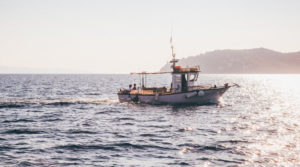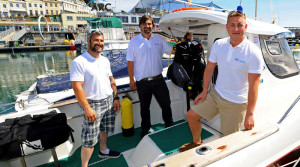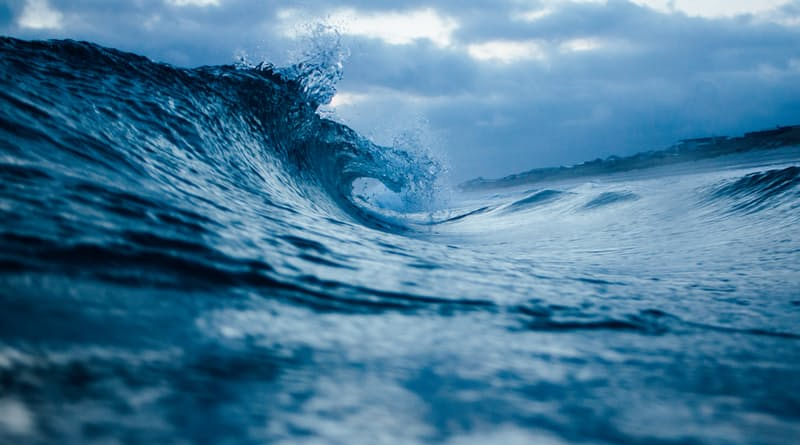THE BUSINESS OF OCEAN CONSERVATION
Our oceans are worth at least $24 trillion according to a WWF report, so how can we afford not to protect and invest in it like any other business?
Water covers 71% of our planet and is, therefore, our largest and most precious natural resource. Like most natural resources across the globe, businesses extract, consume and profit from the ocean, which is why it’s crucial to start replenishing and protecting this extremely valuable resource.
There is a desperate need for large scale and worldwide ocean conservation work to be carried out and these problems cannot be solved by a handful of charities whose limited capacity and strict rules dictate what they can and can’t do with the donated funds. Charities have done a fantastic job in raising awareness for the problems we are facing and getting the ball rolling with conservation work. We now need rapid innovation and socially responsible companies whose creativity and drive to become the best in their sector will help solve the problems we are facing. This will spark the flame for a new industry and, as with most capitalist industries with healthy competition, it brings better products, a higher quality service and, as a result, healthier, more productive oceans. Put simply, we need to make it pay to protect it!
At ARC Marine we are developing a number of products to tackle our oceans’ problems. These include ARC Modules, which are marine-friendly concrete structures built to repair damaged natural reef systems, which also serve as a mooring point for pleasure boats to attach onto. This eliminates the need to lay anchors, which destroys fragile reef systems and delicate sea grass beds. ARC modules also serve as an anti trawling device or a “sleeping policeman” to stop illegal fishing in marine protected areas. These permanent seabed structures save government bodies time and resources on patrolling protected waters. It is impossible to police these areas 24/7 and the illegal fishing industry knows this. It is this multi purpose use that we believe can incorporate artificial reefs into established markets and start protecting the marine environment. Once reef sites have been colonised and nature’s food chain takes over, the overspill form these protected sites will, of course, be beneficial to the fishing and tourism industry due to the increase of fish stocks and cleaner waters.
 There is also the growing market for sustainable fishing practices. Divers collecting by hand suitable fish and shellfish, result in zero by catch compared to traditional fishing methods and without damaging the seabed, which is the case when using beam trawlers. Permits and catch limits can be set and adjusted as fish stocks fluctuate and new jobs will be created through self employed divers and fishing vessels who take divers to designated “reef farms” and negotiate a share of what the divers catch. The result is a completely organic product, which is caught by hand. Yes the market price may rise on certain species on certain days, but isn’t that what the “fish of the day” was originally for on the menu?
There is also the growing market for sustainable fishing practices. Divers collecting by hand suitable fish and shellfish, result in zero by catch compared to traditional fishing methods and without damaging the seabed, which is the case when using beam trawlers. Permits and catch limits can be set and adjusted as fish stocks fluctuate and new jobs will be created through self employed divers and fishing vessels who take divers to designated “reef farms” and negotiate a share of what the divers catch. The result is a completely organic product, which is caught by hand. Yes the market price may rise on certain species on certain days, but isn’t that what the “fish of the day” was originally for on the menu?
Business has played the most significant role in damaging our seas. For example, single use plastics designed for consumer goods and overfishing. The ocean needs repairing and protecting, just like we do with heritage buildings and our land based natural habitats. Specialists are employed to carry out this work and the same is needed for the oceans. If we set the challenge to the business world to tackle this problem not only will this provide a living for a whole new sector, but also everyone on the planet will gain from the increase in productivity from our seas for generations to come.
There is this apparent stigma that you can’t genuinely care about the ocean’s problems if you are doing it to make money. It seems nonsensical that people cannot care about the ocean but also want to profit from the hard work that it takes to achieve these tasks. We need to stop looking at these problems as separate issues and find away for the planet, people and profit to work together.

ABOUT ARC MARINE:
ARC Marine was formed in June 2015 to develop specific products to aid the rehabilitation of damaged reef seabeds that would last longer than ships (which have previously been used to create artificial reefs). It then began developing design prototypes from artificial reefs to sea grass habitats.
The company has created the world’s first multi-functional artificial reef solution. With a strong, modular design, its reef systems protect against depth trawling, provide a superior marine habitat, can act as a robust anchor point for cages and buoys, and can protect marine structures and coastlines against underwater currents and erosion.

In June 2016 ARC Marine were officially named as Virgin StartUp Ambassadors and spent the day at Sir Richard Branson’s family home in Oxfordshire where they took part in a branding workshop.
In December 2016, ARC Marine filed for a patent on the ARC module, a subsea structure capable of providing a marine habitat as well as acting as an anti-trawling device and a mooring/anchor point.
As of February 2017, ARC Marine has secured a tenancy at Brixham laboratory with state of the art laboratory and design studio facilities to facilitate their upcoming projects. Plymouth University is also looking to collaborate on an artificial reef project with ARC Marine in 2017/18 and are assisting their research for projects.
Website – arcmarine.co.uk
Instagram – instagram.com/arcmarine
Twitter – twitter.com/arc_marine
Facebook – facebook.com/Arc-Marine-553495558135887

